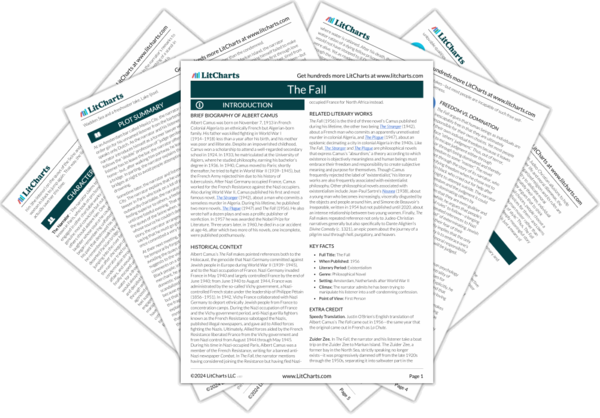Next
Summary
The Fall Study Guide |
Next
Summary
|
Welcome to the LitCharts study guide on Albert Camus's The Fall. Created by the original team behind SparkNotes, LitCharts are the world's best literature guides.

Speedy Translation. Justin O’Brien’s English translation of Albert Camus’s The Fall came out in 1956—the same year that the original came out in French as La Chute.
Zuider Zee. In The Fall, the narrator and his listener take a boat trip on the Zuider Zee to Markan Island. The Zuider Zee, a former bay in the North Sea, strictly speaking no longer exists—it was progressively dammed off from the late 1920s through the 1950s, separating it into saltwater part in the Wadden Sea and a freshwater lake, Lake Ijssel.